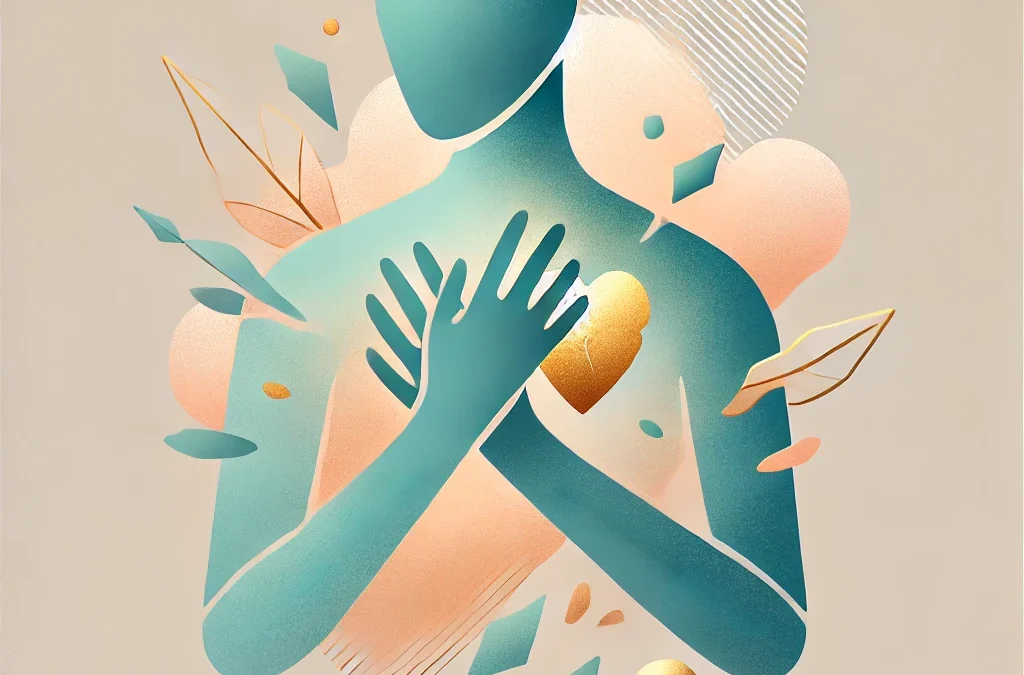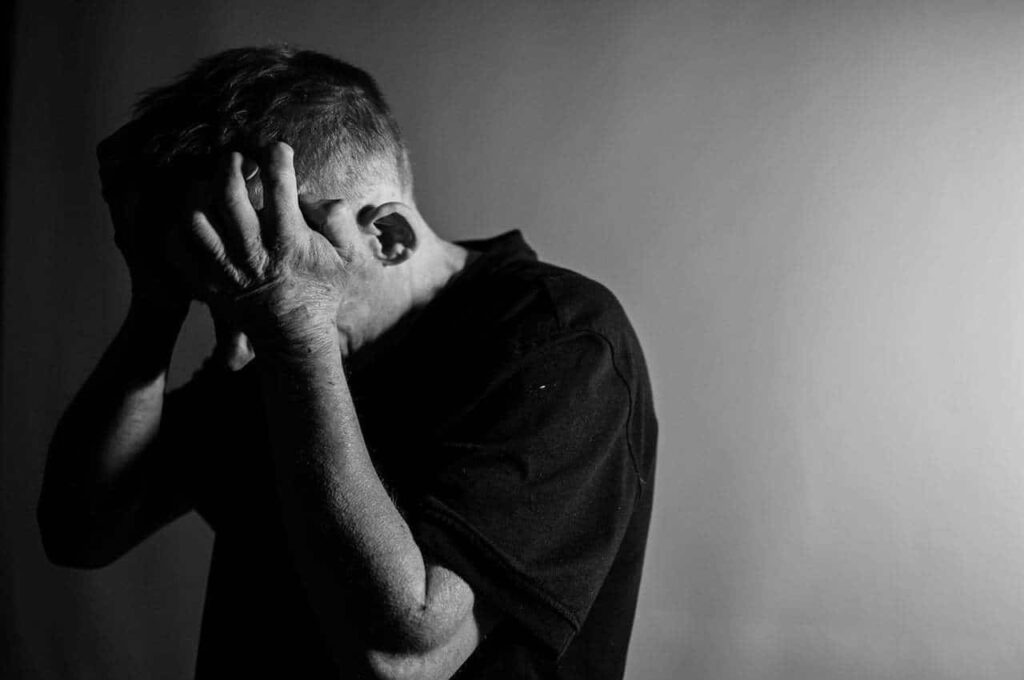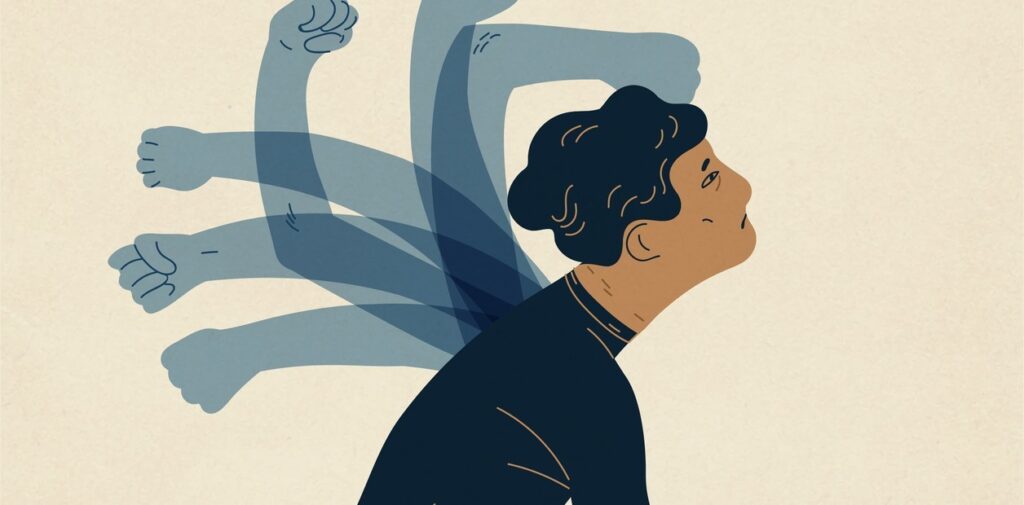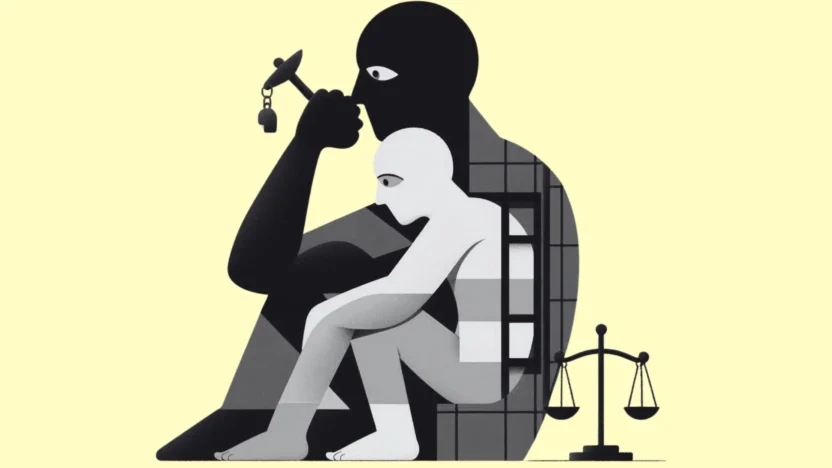
Repressed guilt is a silent yet pervasive emotional burden that can significantly disrupt our inner peace, trapping us in cycles of self-doubt and distress. This deep-seated feeling often originates from unresolved past events and unmet personal expectations, fueling a cycle of emotional turmoil that affects every aspect of our lives. In today’s fast-paced world—where stress and emotional triggers are common—uncovering the root causes of repressed guilt is crucial for healing. In this article, you will find clear, step-by-step strategies designed to help you confront and release these emotional chains, reclaim your inner peace, and build healthier relationships with both yourself and others. Through expert insights and practical advice, we invite you to embark on a journey toward lasting inner freedom and self-forgiveness.
Understanding Repressed Guilt and Its Roots
Repressed guilt is an emotion hidden deep within our subconscious that often casts a long shadow over our thoughts and behavior. This overwhelming sense of guilt can prevent us from living fully in the present, trapping us in cycles where past mistakes and regrets resurface over and over. In psychological terms, repressed guilt is seen as an unresolved conflict that disrupts our emotional harmony until it is addressed.
Many people struggle with feelings of guilt they do not immediately recognize as the source of their anxiety or depression. It is essential to understand that repressed guilt—often originating from childhood experiences or significant life events—affects personality and behavior profoundly. Experts agree that facing these emotions is the first step in unburdening oneself, paving the way for better mental health and personal growth.

Historically, cultures and family expectations have magnified repressed guilt by promoting perfection and discouraging the expression of remorse. Understanding the roots of repressed guilt empowers you to challenge these limiting beliefs and motivates you to pursue a more authentic path toward emotional healing. Whether individually or with the help of a professional, acknowledging these connections is key to addressing deep-seated emotional issues.
Psychological Causes and Impact on Mental Health
Exploring the psychological causes of repressed guilt reveals a complex interplay between personal experiences, societal expectations, and internal values. Research shows that traumatic events, unresolved childhood conflicts, and prevailing cultural narratives all contribute significantly to feelings of guilt. These factors create an environment in which guilt is not only suppressed but also fuels chronic stress and emotional discomfort.
The psychological effects of repressed guilt are far-reaching. It commonly manifests as anxiety, depression, and difficulties in maintaining trusting relationships. When left unaddressed, this guilt can lead to persistent self-criticism and a diminished sense of self-worth. By unraveling the psychological mechanisms behind repressed guilt, you can better identify triggers and patterns that hinder personal development.
Clinical studies consistently link guilt suppression with increased rates of stress-related illnesses, including PTSD and major depressive disorder. Interventions such as cognitive therapy and mindfulness have shown promising results in mitigating these effects. Recognizing and processing repressed emotions is not only vital for mental health but also a critical step toward achieving a balanced, fulfilling life.

The Role of Childhood Experiences
Our childhood experiences lay the groundwork for our emotional well-being. Early experiences—especially those shaped by parental expectations and family dynamics—can deeply imprint feelings of inadequacy, leading one to internalize guilt as a sign of personal flaw.
Understanding these early influences allows you to reframe your perspective on guilt and open the door to more effective therapeutic interventions and personal growth.
Cultural and Societal Influences
Beyond the influence of the family, societal norms that idolize perfection and strict moral codes can intensify feelings of guilt when these standards remain unmet. Such cultural pressures often lead to a heightened sense of inadequacy.
Recognizing these external influences is key to developing a more compassionate self-view—an essential step in overcoming repressed guilt and fostering long-term emotional healing.
Effective Techniques to Confront and Release Repressed Guilt

To achieve inner freedom, confronting repressed guilt head-on is essential. One highly effective technique is mindfulness meditation, which encourages a non-judgmental awareness of your emotions. This practice not only helps you acknowledge guilt but also gradually release it. Mindfulness creates a safe space where you can explore your emotions without feeling overwhelmed.
Journaling is another powerful cognitive strategy. By writing about your experiences, you are able to articulate and externalize your inner dialogue. Research suggests that regular journaling helps to reduce the intensity of repressed emotions, serving as a practical tool for self-healing. Each session offers insights into the triggers of your guilt and provides an opportunity to break negative thought patterns.
Additionally, talking therapies—such as cognitive behavioral therapy (CBT)—provide structured guidance to help transform harmful beliefs. With professional support, techniques like exposure therapy can gradually lessen the grip of repressed guilt. These methods empower you to open up about your past, confront your emotions, and pave the way for lasting inner freedom.
Long-term Strategies and Resources for Sustained Inner Freedom
Long-term strategies are essential for maintaining inner freedom beyond immediate relief from repressed guilt. Establishing regular self-care routines—such as regular exercise, balanced nutrition, and sufficient sleep—builds a strong foundation for overall mental well-being. Sustained inner freedom is achieved by incorporating healthy habits into your everyday life, ensuring that your emotions remain balanced over time.
Building a supportive network is equally important. Surrounding yourself with understanding community groups, support circles, or spiritual communities provides the empathy and perspective needed to navigate your emotional landscape. These networks remind you that you are not alone in your journey to overcome guilt.
Equally valuable are educational resources that deepen your knowledge of emotional well-being. Books, online courses, and counseling services can provide research-backed insights into the emotional processes at play. Resources from reputable institutions like the American Psychological Association and universities offer guidance and support. These long-term strategies empower you to tackle future challenges with resilience and confidence.

Developing a Consistent Self-Care Routine
Integrating a consistent self-care routine can significantly alleviate emotional burdens. Practices such as yoga, meditation, and regular physical activity reduce stress and enhance mood.
By prioritizing self-care, you create a nurturing environment that supports continuous emotional healing and stability.
Leveraging Professional Resources
When guilt feels overwhelming, seeking professional help can be transformative. Therapists, counselors, and support groups offer a structured framework to explore and resolve deep-seated emotions.
Regular professional guidance helps break the cycle of repressed guilt and equips you with tools to maintain emotional well-being over time.
Contenido Adicional
In this additional section, we delve deeper into the complex nature of repressed guilt and its broad impact on our lives. By exploring extensive research, advanced insights, and innovative techniques, you can further enhance your journey toward emotional balance. Revisiting the key ideas discussed earlier helps build a comprehensive model for genuine emotional recovery.
Recent studies emphasize that self-forgiveness and acceptance are critical components in the healing process. Approaches focused on self-compassion reveal that guilt is not a fixed state but rather a signal calling for transformation. Techniques such as guided imagery, expressive art therapy, and somatic experiencing are emerging as effective ways to overcome cognitive barriers and tap into deeper emotional layers, facilitating true healing.

Moreover, adopting a mindset of curiosity towards your emotions can transform repressed guilt into a powerful tool for personal insight and growth. Incorporating daily self-reflection gradually helps you understand your emotional patterns and triggers. Peer-reviewed journals and respected psychological sources—such as PubMed and the National Institute of Mental Health—offer evidence-based practices that improve overall life satisfaction. Embracing continuous learning and self-discovery will strengthen your journey toward long-term inner freedom.
In conclusion, overcoming repressed guilt is a transformative journey that begins with recognizing its origins and addressing painful emotions through effective strategies. By incorporating the techniques and resources discussed, you can begin to shed the weight of past regrets and move towards a life filled with inner freedom and self-acceptance. Remember that achieving mental clarity and emotional balance is a gradual, personal process that improves with each day dedicated to healing. Your commitment to overcoming repressed guilt can lead to improved relationships, enhanced self-worth, and a renewed sense of peace. Embrace each step of this journey and allow yourself the patience and grace necessary for growth.




